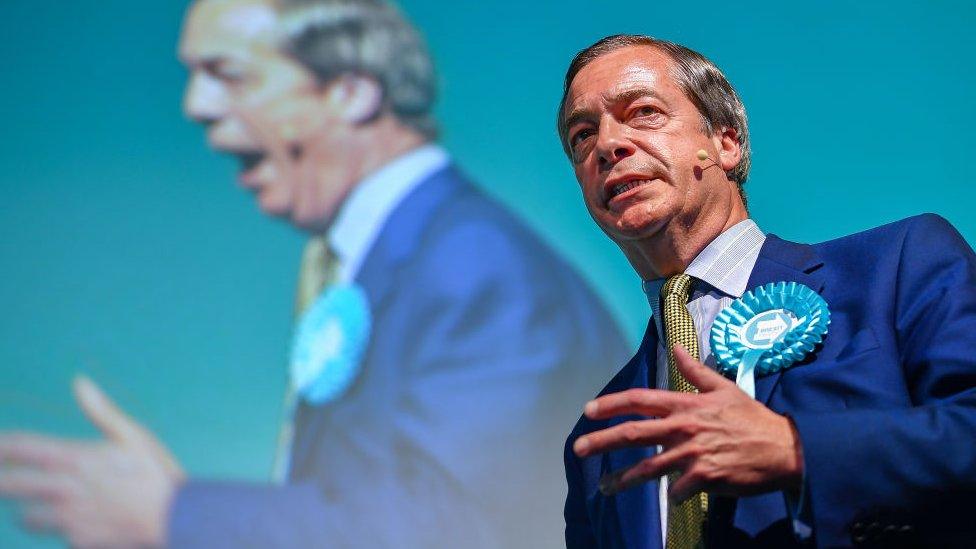European elections 2019: What are the rules on party funding?
- Published

In the run-up to this week's European Parliament elections, Gordon Brown, the former Labour prime minister, has called for an investigation into the funding of the Brexit Party.
Mr Brown accused the party of receiving a large amount of money via small "undeclared, untraceable payments".
Nigel Farage, the Brexit Party leader, has dismissed any suggestion that his party has broken any rules.
There are strict requirements around party donations, - an independent body which regulates elections held in the UK and political finance.
What counts as a donation?
This is how the Electoral Commission defines it:
"A donation is money, goods or services given to a party without charge or on non-commercial terms, with a value of over £500."
So, according to existing law, any payment under £500 is not classified as a donation. This means that when dealing with smaller sums of £500 or less, there is no legal requirement for details of these donations (such as individuals' names and addresses) to be reported to the Electoral Commission.
But what happens if an individual makes lots of small payments to a party in the same year? Say, for example, someone makes multiple donations of £499 to a political party through a crowd-funding website?
According to the Electoral Commission, making lots of payments like this to get round donor rules is an offence. It says multiple donations should be treated as one and that parties must maintain records "in a way that enables you to ascertain if multiple donations have come from the same source".
The Brexit Party has said it accepts donations from PayPal - an online service which allows users to make direct payments. Mr Farage says his party complies with Electoral Commission requirements and denied claims the party took donations in foreign currency.
Both the Labour and Conservative parties have the option to donate via PayPal on their websites.
Asked about donations of under £500, Mr Farage said: "Our website says very clearly, do not donate unless you are on the electoral roll or eligible to vote."
The Commission told the ┤¾¤¾┤½├¢ the emphasis was on parties to ensure donations complied with the rules. According to the Commission's guidance, parties must not accept a donation if they are uncertain who the donor is.
What about larger payments?
When it comes to payments of £500 or more (ie the amount that legally counts as a donation), parties must keep track of everyone who has given money.
When a party receives a donation it has 30 days to decide if it complies with the rules and whether they can accept it. For instance, individuals can only donate if they are on the UK electoral register (although they can be living overseas).
Even if a party does not accept a donation, it still has to record certain details - including its value and the donor's name and address, and pass these on to the Electoral Commission.
Individuals with particularly deep pockets will also have their name made public. This applies to all individual donations worth more than £7,500 in a calendar year.
The rule still applies if the same individual makes lots of smaller donations (just as long as the total exceeds £7,500 over the course of the year).
Like the Brexit Party, the Conservatives, Labour, Lib Dems, Greens and Change UK all say they adhere to Electoral Commission rules for payments over £500 but do not go through the same process for smaller amounts, which do not count as donations under law.
Where can donor information be found?
The Electoral Commission publishes on party donations.
The details are updated every three months, with the most recent report covering October to December 2018. In that period, UK political parties received a total of £9.9m from 455 donors. The highest was a £1.5m individual donation to the Conservative Party.
Donations covering January to March 2019 will be published on 30 May.
- Published21 May 2019